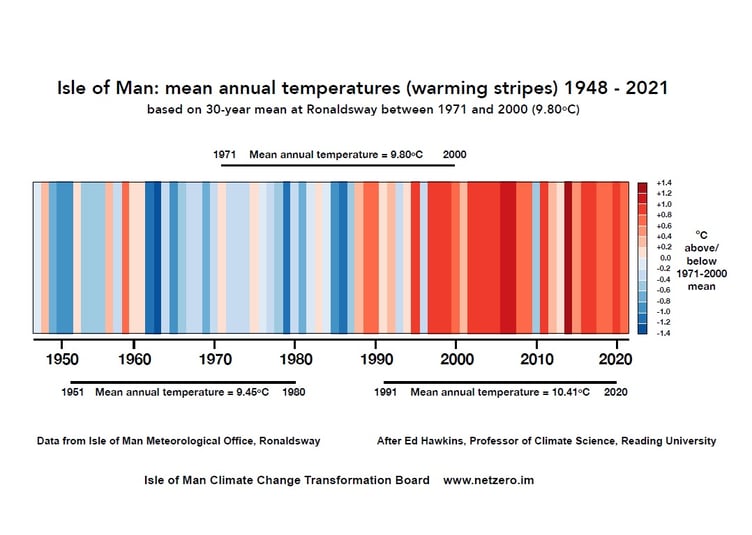Sometimes it’s hard to appreciate the impact of climate change when the Isle of Man’s temperate weather shields us from experiencing the worst effects – most of the time.
Yet the latest reports from the Intergovernmental Panel on Climate Change (IPCC) are stark and unequivocal: ‘Climate change is a threat to human well-being and planetary health. Any further delay in concerted anticipatory global action on adaptation and mitigation will miss a brief and rapidly closing window of opportunity to secure a liveable and sustainable future for all.’
(Working Group 2 – Climate Change 2022 – Impacts, Adaptation and Vulnerability – February 28, 2022)
At the COP26 summit last November in Glasgow I was moved by reports from young people how their childhood beach had disappeared into rising sea levels; others were still displaced years after devastating hurricanes had swept whole communities away; evidence of the acidification of the oceans that was threatening coral reefs but increasingly also plants and marine life.
It prompted me to wonder why have basking shark numbers reduced in Manx waters – human activity or could climate change be affecting their food source? And the recent increase in octopuses seen off Cornwall – warmer seas or cyclic population boom?
Our island has consistently averaged warmer temperatures for the past 20 years (see diagram), and the fear is this will accelerate.
Once in a lifetime flooding events are now more frequent – consider Laxey in 2002, 2015 and 2019.
More worryingly the IPCC Working Group 3 (Climate Change 2022 – Mitigation of Climate Change 4 report published 4 April 2022) says countries’ current efforts are not enough to limit global warming to 1.5°C, and, as we report in the first Progress Report of the Climate Change Transformation Board, fixing the climate now by addressing the causes of climate change will come at a lower cost than paying to recover from the damage.
The Isle of Man Government allocated £42million to climate mitigation this year, of which £9million is under the Department of Infrastructure to improve sea and river flood defences.
A total of £7.2million has been allocated to support people through Green Living Grant applications to improve homes – with insulation and double glazing for example – while other funding aims to support government to improve its own estate.
Major infrastructure renewal, including renewable generation, will be addressed by government over the coming months and years alongside a decline in use of the gas turbine power station at Pulrose and installation of a second undersea interconnector.
Even small actions by individuals can have a positive impact.
Flying less frequently, reducing car journeys by using public transport or active travel. Given the current energy and cost of living crises, it is even more imperative to improve homes and reduce heating costs.
Ensuring your property is well insulated is top priority.
When it is necessary to replace your boiler seek advice over new technologies such as fitting ground or air source heat pumps.
Likewise, consider switching to electric vehicles as manufacturers wind down production of fossil fuel cars ahead of the UK ban in 2030.
Purchasing an electric car was a no brainer for me for island driving, saving every month on running costs and insurance compared with my previous car (even without having a home charger).
Government will shortly publish the climate change plan and roadmap to net zero for the Isle of Man.
Information, advice and all research reports can be found on the netzero.im website.




